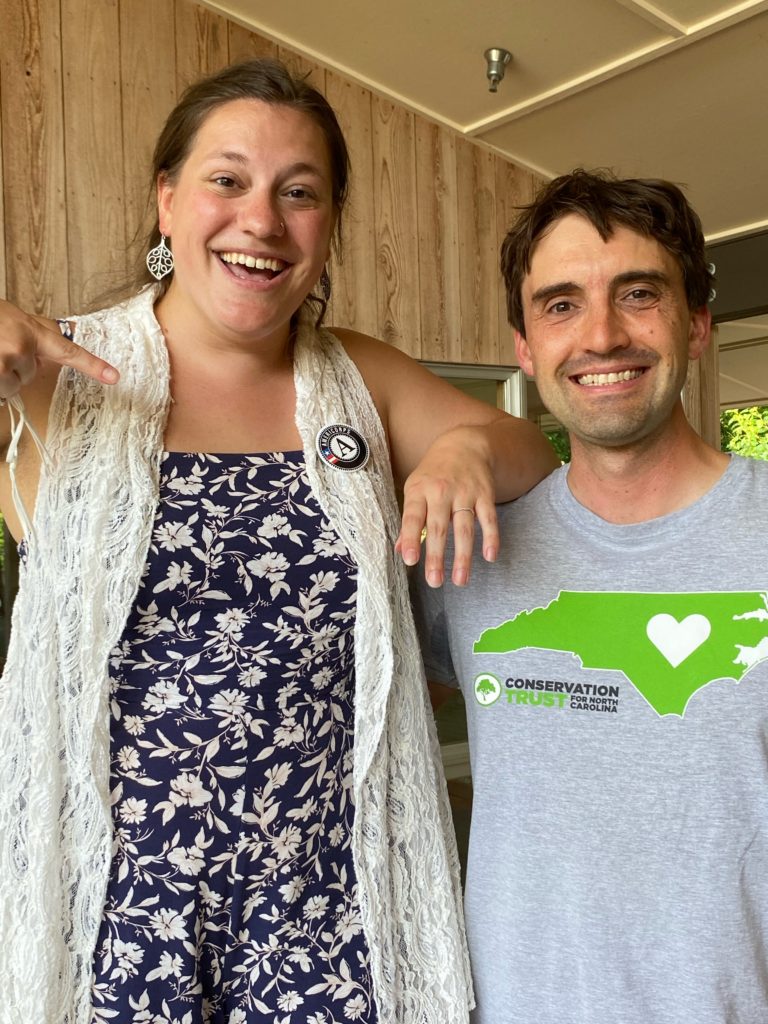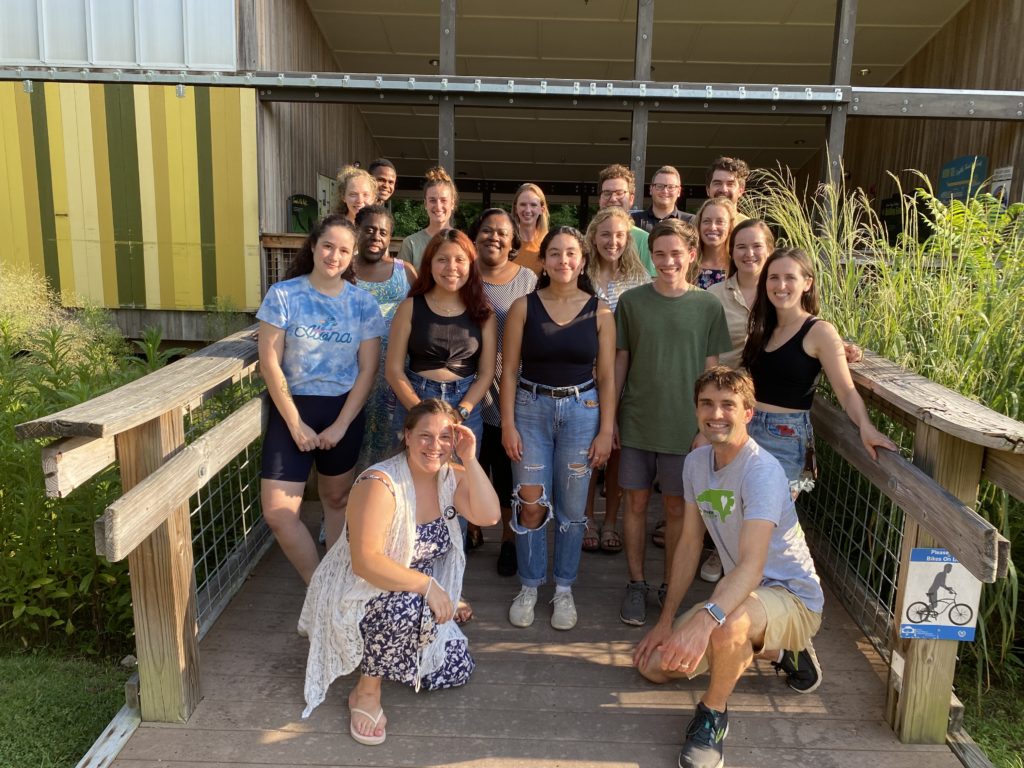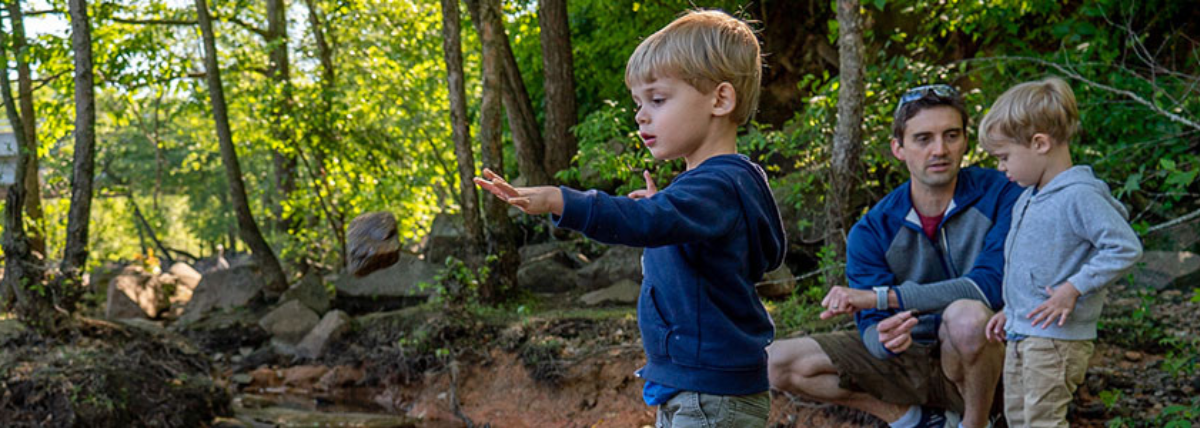Nick DiColandrea isn’t new to CTNC. For six years, he served as the Resilience Corps NC Program Director. In 2022, he returned to a new role – Climate Strategies Officer, a position that still involves him with AmeriCorps. He works to connect AmeriCorps service opportunities to communities in need of expanded climate mitigation and recovery capacities.
This work builds on his extensive experience in the nonprofit sector, holding positions across multiple organizations dedicated to community capacity building, youth leadership, mentoring, and community service. His free time activities focused on service also follow this theme: Board Treasurer of the Museum of Life in Science in Durham, the school PTA as VP of Fundraising & Volunteer Chair, and as Board Treasurer of his neighborhood’s HOA.

When did you first realize the real and present impacts of climate change?
I probably realized we were living in a climate-change-affected world a few years ago when we stopped getting annual snow storms of any significance in North Carolina. Having grown up here since the late 1990s, I distinctly remember colder and wetter winters, and even during my time in college. However, over the last 10 years, I can trace the lack of an actual winter now, and how it has happened more times in the lives of my children than my entire life in the state.
How have you seen climate change impact North Carolina?
When the state was hit by multiple hurricanes over 2016 and 2017, I got to see firsthand, and still do to this day, the impacts these more frequent hurricanes are causing people down east. Working with other disaster relief partners, I have heard stories about how even years later people are living in homes not yet fully restored and families permanently displaced outside of our state. These devastating disasters will occur more frequently and are going to result in a state we may seldom recognize in the decades to come.
What does climate resilience mean to you?
Climate resilience is helping communities be able to bounce back stronger after the climate crisis hits their homes. It means assisting standing communities’ economies back up, working with families suffering from the loss of their community, or developing plans or actions that will lead to quicker recovery through mitigation. It essentially means being there for people in their communities who will suffer from climate change.
What’s one thing everyone should know about climate action?
That no matter how small your action is, it will make a difference. We do not affect meaningful changes with just big ticket items on climate action, but that light you turn off, that conversation with your best friend or that walk to take to the store instead of the drive, all add up in profound ways to address climate change.

What are actions that organizations in NC can do right now to make our state more resilient?
Be a part of the conversations around resilience in your community. Find where your mission niche is and see how it connects to environmental and community resilience, and then dig in and get to work. Mitigating and surviving the climate crisis is not going to be solved alone by environmental organizations, and it is going to take everyone in the community being a part of this work in the years ahead.
Working in climate resilience can be overwhelming. How do you keep going?
Lots of coffee and lots of positive thinking. I take more mental health breaks now, sitting for quick meditation moments, and stopping more to unplug from the work and just enjoy being.

